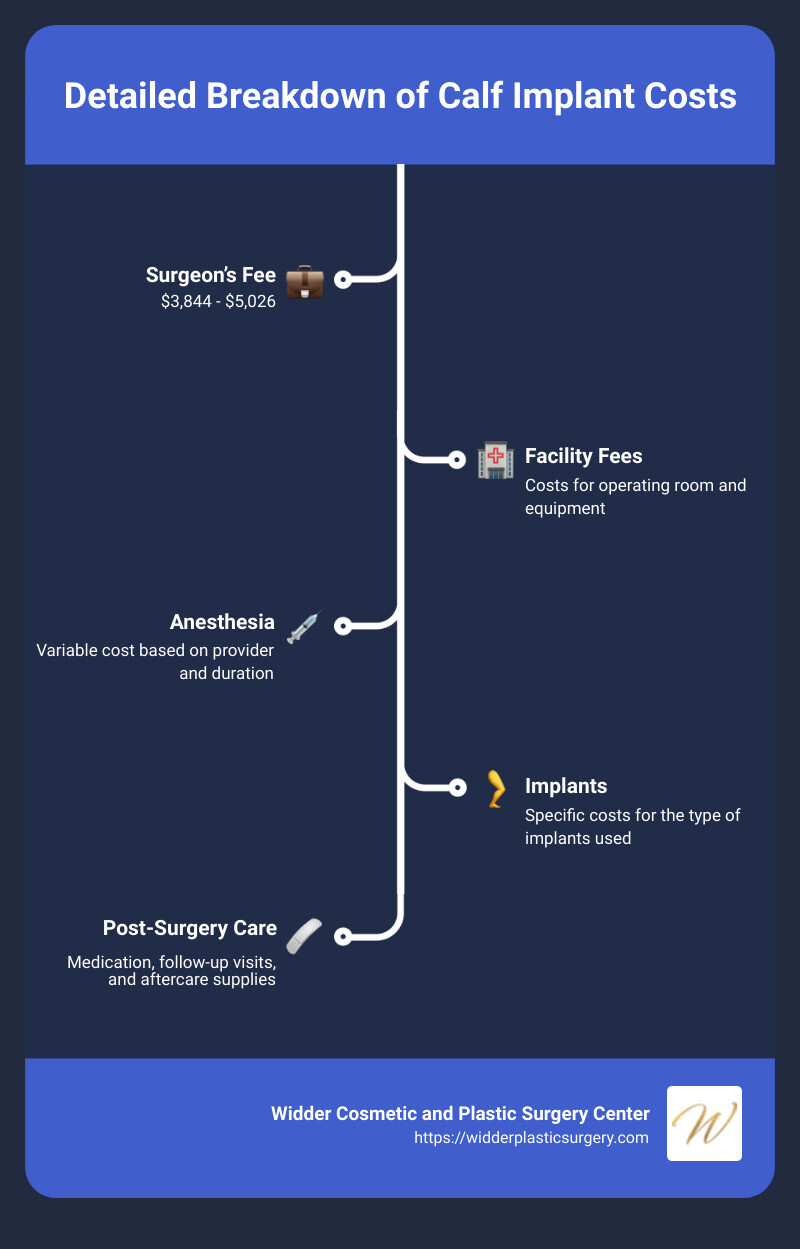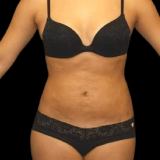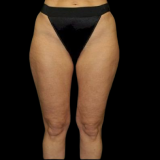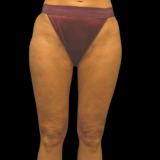Contents
Budgeting for Calf Implants: What You Need to Know
Considering calf implants? One of the first questions you’ll likely have is, “What is the average cost of calf implants?” Let’s get right to it:
- The average cost of calf implants is between $3,844 and $5,026.
This cost typically covers the surgeon’s fee but does not include other essentials like anesthesia, facility fees, and post-surgery care.
Cost Overview
1. Surgeon’s fee: $3,844 – $5,026
2. Additional Expenses: Variable (anesthesia, facility fees, medications)
When planning for calf implants, understanding the complete expenses involved is essential. Many factors, including the surgeon’s expertise, geographic location, and type of implant, impact the overall cost. Proper financial planning and budgeting will help you manage these costs more effectively.
I’m Shlomo Widder, MD. With decades of experience in plastic surgery, I understand the complexities involved in planning for calf implants. Here, I’ll guide you through the various costs, helping you make an informed decision while budgeting for your procedure.

Average Cost of Calf Implants
When planning for calf implants, understanding the complete expenses involved is essential. Many factors, including the surgeon’s expertise, geographic location, and type of implant, impact the overall cost. Proper financial planning and budgeting will help you manage these costs more effectively.
I’m Shlomo Widder, MD. With decades of experience in plastic surgery, I understand the complexities involved in planning for calf implants. Here, I’ll guide you through the various costs, helping you make an informed decision while budgeting for your procedure.
Surgeon’s Fee
The average cost of calf implants primarily includes the surgeon’s fee. According to the American Society of Plastic Surgeons, this can range around $3,844. However, this number can vary based on the surgeon’s experience and reputation.
Facility Charges
Facility charges cover the use of the operating room and related services. These fees ensure that the surgical environment is sterile and equipped with the necessary tools. The cost for facility charges can vary widely based on the geographic location and the facility’s standards.
Anesthesia
Anesthesia is a crucial part of the surgery, ensuring you are comfortable and pain-free during the procedure. The cost for anesthesia can range from a few hundred to over a thousand dollars, depending on the type used (general or spinal) and the anesthesiologist’s fees.
Implants
The implants themselves are another significant cost factor. Calf implants are typically made from silicone and vary in price based on their size and shape. Custom-made implants might cost more but offer a tailored fit for your body.
Medication
Post-surgery, you will need medications to manage pain and prevent infection. These can include prescription pain relievers and antibiotics. The cost for these medications is generally not included in the initial surgery fee and should be budgeted separately.
Aftercare Supplies
Aftercare supplies are essential for a smooth recovery. These can include compression garments, which help reduce swelling and support your calves as they heal. The cost of these supplies can add up, so it’s important to include them in your budget.
Understanding these costs will help you plan effectively for your calf implant surgery. Next, we will explore the factors influencing the cost of calf implants to give you a clearer picture.
Factors Influencing the Cost of Calf Implants
When budgeting for calf implants, several factors can significantly impact the overall cost. Understanding these elements will help you plan more effectively and avoid unexpected expenses.
Surgeon’s Expertise
The surgeon’s experience and reputation play a major role in the cost of calf implants. Highly skilled, board-certified plastic surgeons often charge more due to their expertise and track record of successful outcomes. Investing in a highly qualified professional can reduce risks and improve the quality of your results.
Geographic Location
Where you have your surgery also affects the cost. Procedures in metropolitan areas or regions with a high cost of living are typically more expensive. For example, calf implants in Northern Virginia might cost more than in other areas due to higher facility and living costs.
Type of Implant
The type of implant you choose will influence the cost. Calf implants are generally made from silicone, but there are variations in quality and type, such as silicone gel or solid silicone. Higher-quality implants, which offer better durability and a more natural look, might be more expensive.
Facility Standards
The standards of the facility where you have your surgery can also affect the cost. Accredited surgical centers or hospitals with advanced technology and stringent safety protocols will typically charge more. However, these facilities often ensure a higher level of care and reduce the risk of complications.
Additional Costs
Beyond the primary factors, there are additional costs to consider:
- Anesthesia: Administered by a certified anesthesiologist, this is a crucial part of the surgery, ensuring your comfort and safety.
- Postoperative Care: Includes follow-up visits, prescribed medications for pain relief and infection prevention, and any additional treatments required for a smooth recovery.
- Medical Tests: Pre-op tests to ensure you’re a good candidate for surgery and post-op tests to monitor your healing process.
By considering these factors, you can better understand the overall cost of calf implants and plan your budget accordingly.
Breakdown of Expenses in Calf Implant Surgery
Understanding the costs involved in calf implant surgery can help you plan your budget effectively. Here’s a detailed breakdown of what you can expect:
Pre-op Lab Testing
Before the surgery, you’ll need several medical tests to ensure you’re a suitable candidate. These tests might include blood work, imaging tests, and a general health assessment.
Cost range: $100 – $500
These tests are crucial for identifying any underlying health issues that could complicate the surgery.
Prescription Medications
After the surgery, you’ll likely need medications to manage pain and prevent infection. Your surgeon will prescribe these medications, which could include pain relievers, antibiotics, and anti-inflammatory drugs.
Cost range: $50 – $200
Having these medications ready in advance will help you manage your recovery more comfortably.
Surgical Garments
Compression stockings or other surgical garments are often required to support your calves and minimize swelling after the procedure. These garments help keep the implants in place and promote better healing.
Cost range: $50 – $150
You’ll typically need to wear these garments for about two weeks post-surgery.
Post-surgery Care
Post-surgery care includes follow-up visits with your surgeon to monitor your recovery. These visits ensure that your healing process is on track and allow the surgeon to address any complications early.
Cost range: $100 – $300 per visit
In addition to follow-up visits, you may need additional treatments or therapies to aid your recovery.
By understanding these expenses, you can get a clearer picture of the overall cost of calf implant surgery. Next, we will discuss the long-term financial considerations you should keep in mind.
Long-Term Financial Considerations for Calf Implants
When budgeting for calf implants, it’s important to consider not just the initial costs but also the long-term financial commitments. Here are some key points to keep in mind:
Maintenance Costs
Calf implants require ongoing care to ensure they remain in good condition. This includes:
- Regular check-ups: Routine visits to your surgeon help monitor the implants and catch potential issues early. These visits can cost between $100 and $300 each.
- Compression garments: You might need to wear compression stockings to reduce swelling and support recovery. These can cost around $50 to $100 and may need to be replaced periodically.
- Medications: Pain management and anti-inflammatory medications can add to your expenses. Costs will vary depending on your specific needs.
Potential Future Surgeries
While calf implants are designed to last many years, they are not permanent. Over time, you may need additional procedures, such as:
- Implant replacement: Calf implants typically last around 10 to 15 years. As they age, they can break down or shift, requiring replacement surgery. This can cost approximately the same as the initial procedure, averaging around $3,844 for the surgeon’s fee alone.
- Revision surgery: Complications like capsular contracture, where scar tissue forms around the implant, may require corrective surgery. The cost for revision can vary widely based on the complexity of the procedure.
Longevity of Implants
The longevity of calf implants can be influenced by several factors:
- Lifestyle: High-impact activities and intense physical exertion can shorten the lifespan of your implants. Moderate exercise is beneficial, but avoid activities that put excessive strain on your calves.
- Health and diet: Maintaining a healthy lifestyle, including a balanced diet and staying hydrated, supports overall health and can help extend the life of your implants.
- Regular monitoring: Consistent follow-up with your surgeon ensures any potential issues are addressed promptly, helping to maximize the lifespan of your implants.
By considering these long-term financial aspects, you can better plan your budget and ensure that you are fully prepared for both the immediate and future costs associated with calf implants.
Frequently Asked Questions about Calf Implants
Are calf implants worth it?
Calf implants can be a game-changer for many people. They often provide a significant boost in self-esteem and confidence. For example, many patients report feeling more comfortable wearing shorts and skirts post-surgery.
Corrective benefits are another reason why calf implants are worth considering. They can help balance muscular imbalances due to physical or birth defects. For bodybuilders, implants can enhance muscle definition when workouts alone aren’t enough.
Choosing a qualified surgeon is crucial for achieving these benefits. A board-certified plastic surgeon with experience in calf implants can ensure the best possible results.
How long do calf implants last?
Calf implants are designed to be long-lasting, typically up to 10 or 15 years. However, they aren’t permanent and may require replacement due to aging or implant degradation.
Replacement timeline varies, but many patients find they need a second surgery after a decade or so. Regular follow-ups with your surgeon can help monitor the condition of your implants.
What age should a calf be implanted?
Optimal timing for calf implants is usually after the body has fully matured. This often means waiting until your early 20s.
Research insights suggest that waiting until full growth ensures the best results and reduces the need for future adjustments.
Growth benefits from waiting include better symmetry and proportion, as the body has completed its natural development. This timing also allows for a more predictable outcome and reduces the risk of complications.
Conclusion
Choosing to get calf implants is a significant decision. It’s important to weigh the benefits, risks, and your personal goals. If you’re looking to enhance your calf size and shape, correct muscle imbalances, or boost your confidence, calf implants could be the right choice for you.
Why Choose Widder Cosmetic and Plastic Surgery Center
When considering calf implants, selecting the right place for your procedure is crucial. Here’s why Widder Cosmetic and Plastic Surgery Center stands out:
Personalized Care: At Widder Cosmetic and Plastic Surgery Center, you’re not just another patient. We provide personalized care tailored to your unique needs. From your initial consultation to post-surgery follow-ups, we ensure you feel comfortable and supported every step of the way. Our team takes the time to understand your goals and works with you to achieve the best possible results.
Experienced Staff: Our staff is highly trained and experienced in cosmetic and reconstructive surgery. We pride ourselves on our attention to detail and commitment to excellence. Our team stays updated with the latest techniques and technologies to provide you with the safest and most effective treatments available.
Dr. Shlomo Widder: Dr. Shlomo Widder, our lead surgeon, brings years of expertise to the table. Known for his innovative techniques and dedication to patient satisfaction, Dr. Widder has earned a reputation as one of the top plastic surgeons in the area. He takes the time to understand your goals and works meticulously to achieve results that enhance both your appearance and confidence.
Dr. Widder’s extensive experience ensures that your calf implant procedure is performed with precision and care. His commitment to excellence means you can trust that you’re in good hands.
By choosing Widder Cosmetic and Plastic Surgery Center, you are opting for a team that prioritizes your well-being and strives to deliver the best possible outcomes.
If you’re ready to take the next step, schedule a consultation with us today. We look forward to helping you achieve the look you desire!






